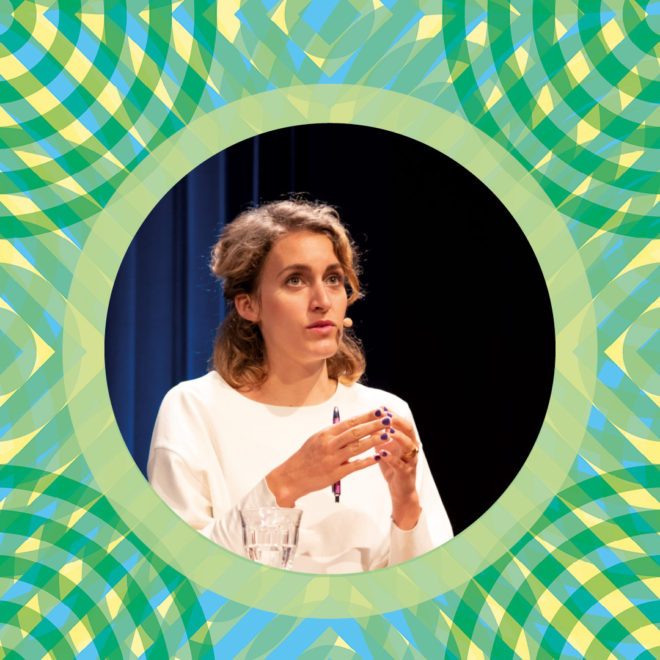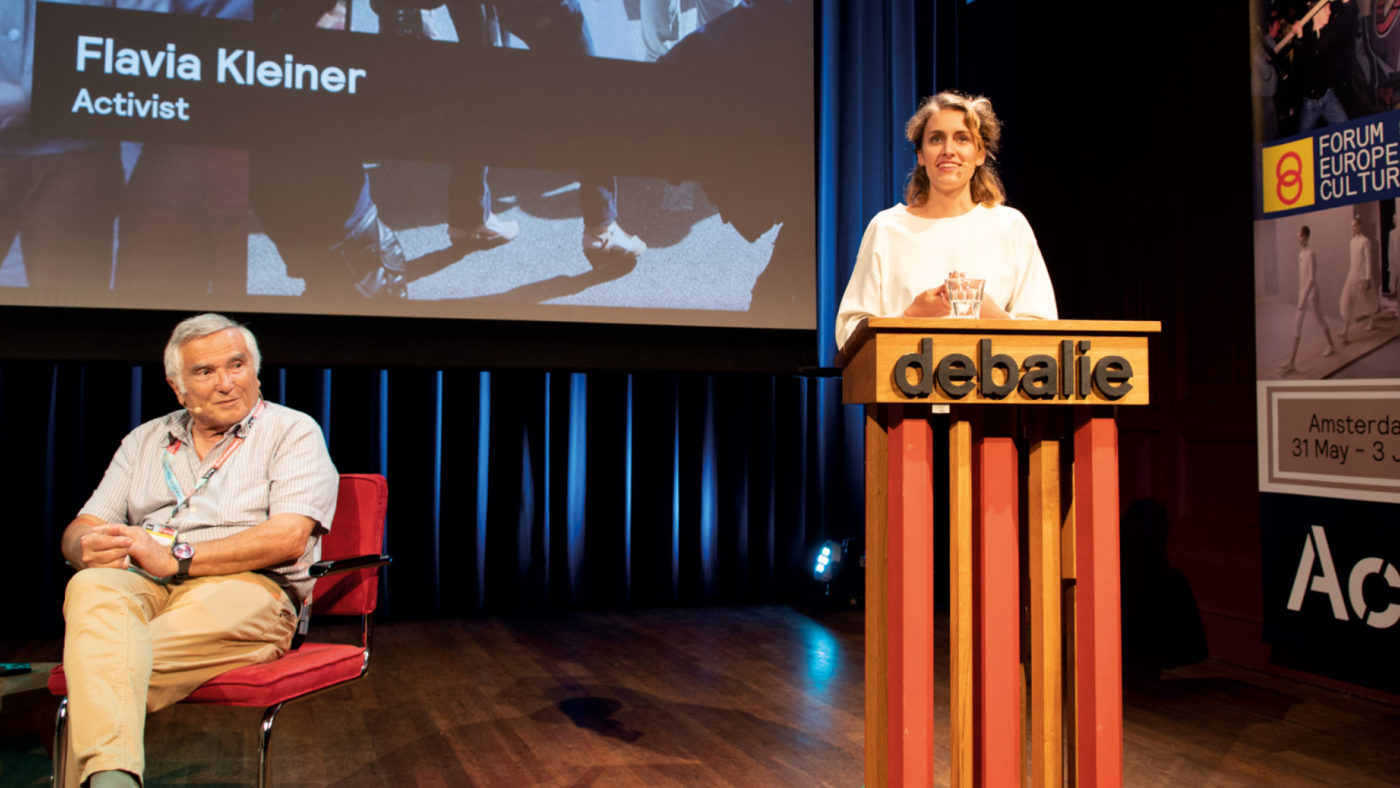Flavia Kleiner (1990) from Switzerland is a historian and the leader of Operation Libero
In 2015, everything seemed to indicate that the right-wing populists in Switzerland were going to win a referendum for the umpteenth time. This time they were planning to establish a new article in the Swiss constitution that would automatically expel immigrants who had committed even minor crimes. The other political parties kept quiet.
This made the Swiss Flavia Kleiner (1990), who was a student of history at the time, incredibly angry. If nobody was openly going to oppose this proposition, then she would. With the volunteer movement Operation Libero, she started a counter-campaign and frustrated the plans of the right-wing populists. The Swiss People’s Party, who forms the biggest group in parliament with nearly 30 percent of the seats, and who successfully dominates the public discourse and agenda in Switzerland, was gloriously defeated: 59 per cent of the Swiss people vote against the law. Since then, Kleiner, now a full-time political activist dressed in a ‘bulletproof jacket full of arguments’ with Operation Libero, has achieved success after success.
“It feels strange that I, a young person for goodness’ sake, am the one who is trying to maintain the status quo.”
In the context of ’68, you call yourself a conservative. Why?
“In 1968, citizens fought for freedoms. Fifty years later, I’m trying to defend those freedoms. It feels strange that I, a young person for goodness’ sake, am the one who is trying to maintain the status quo. I fight for the preservation of very basic liberties.”
What is going on?
“Everyone wants liberties, but they go together with responsibilities. In 2018 people seem less willing to bear these responsibilities. Take the terrorist attacks: the first thing they do is throw out the protection of privacy. Safety does not lead to more freedom at all, but the populists keep going on about it. It may even be an understandable response, but please, let us not throw overboard too quickly what our parents and grandparents have fought so hard for.
“There was a great transnational democratic moment after the First World War and another after the Second World War – the foundation for the EU was laid in that time. Then came ’68, and later the Fall of the Wall also led to critical democratic developments. I do not want to sound overly dramatic, but I wonder: could we organise a new democratic moment without it being preceded by a war?”
How do you, yourself, try to set that ‘democratic moment’ in motion?
“By ‘translating’, by explaining in plain language what it’s all about. We started Operation Libero because we were disappointed in the political parties: they followed the agenda and the rhetoric of the People’s Party for fear of losing votes. If the People’s party says they want to throw criminal foreigners out of the country, it obviously doesn’t make sense to defend ‘criminals’. Instead, we made clear what was really at stake: rule of law. If the fundamental principle, that everyone is treated equally before the law – whether Swiss or foreigner – is not respected anymore, then it has consequences for all people.”
How can you avoid the perception that the liberal elite will ‘explain it to the stupid citizens’?
“I don’t see it that way. Citizens are generally very sensible and reasonable, but just busy with their own lives. If you want to make something clear, you must make an effort to make people listen to you. We present a vision that we think is important, and then people decide for themselves what they do with it.”

